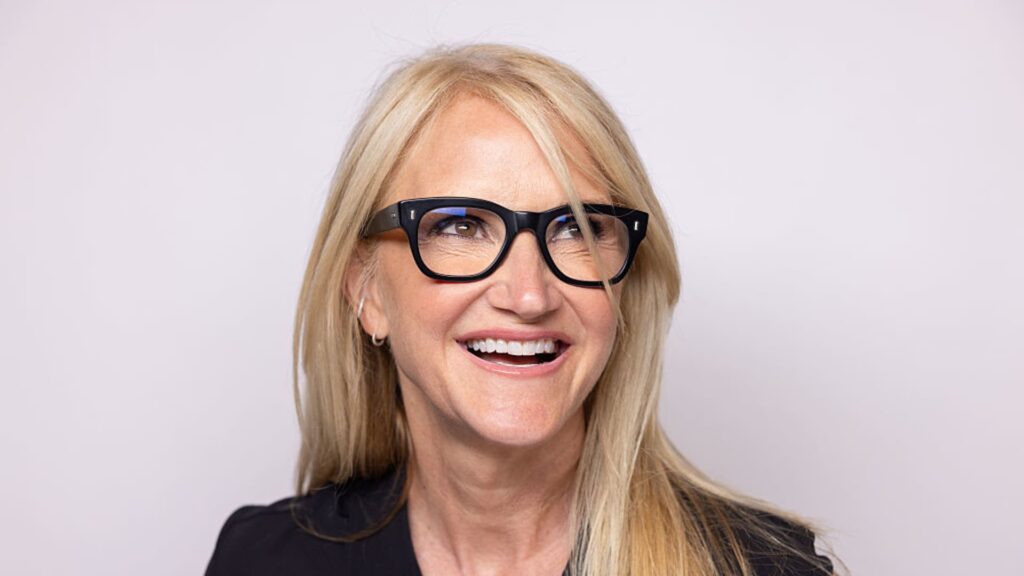Your child is throwing a tantrum, and it’s stressing you out.
Perhaps they’re afraid of the dark, so you avoid an outburst by offering them a spot in your bed — but now it’s a bad habit they can’t seem to break. Or your child feels uncomfortable in social settings, so you let them stay home, and now they can’t make friends at school.
Giving into your kids to avoid your own feelings of stress and anxiety does more harm than good in the long run, says bestselling author and personal growth expert Mel Robbins. It’s a big mistake she made when raising her daughter, the 56-year-old said on a May 6 episode of “The Oprah Podcast.”
“I really screwed this up as a mother,” said Robbins. “As a mother, I take full responsibility for making my child’s anxiety a hundred times worse. The single best thing you could do for your daughter is to get control of and heal your anxiety.”
DON’T MISS: How to change careers and be happier at work
Robbins herself was an anxious child, and her now-adult daughter expressed similar tendencies as a young kid, she said — sleeping on her mother’s bedroom floor for almost a year due to separation anxiety, for example. Telling her “no” resulted in a fuss, triggering Robbins’ own anxiety, so she allowed it to happen for longer than she should’ve, she added.
“You want to know what I taught my daughter by doing that? I taught her that you’re not capable of facing something that’s difficult,” Robbins said. “She got to the point that she didn’t want to go to school … I couldn’t leave and go anywhere.”
Learning how to overcome your own anxiety is the first step to helping your kids do the same, said Robbins. And teaching them how to be mentally resilient gives them a better chance of becoming successful as adults, some psychologists say.
People may use several common-sense strategies to ward off stress: talking to a therapist or loved one, eating healthier and sleeping more, working out, writing in a journal. Other tactics may be less obvious, like sleeping with your phone in another room, Robbins noted.
“You’re checking emails and messages [as soon as you wake up] and you wonder why you’re stressed out and exhausted,” said Robbins. “You’re not even out of bed, and you have put all this other stuff in your brain.”
Martha Beck, a Harvard University-trained sociologist, uses a process called KIST, or “kind internal self talk,” she wrote for CNBC Make It in January.
Imagine your anxiety as a small, furry animal and tell it, “You’re OK,” or “Everything’s fine.” Then, when you feel even the smallest shift in your anxiety, “offer yourself kind wishes” — say something like, “May you feel peaceful,” Beck wrote.
Finally, imagine tucking your anxiety into a cozy box and carrying it gently in a small bag slung over your shoulder, wrote Beck.
Once your emotions are in check, you can more effectively talk to your child. Robbins suggested some potential language to use: “I know this is scary, I know this feels uncomfortable and I’m going to be by your side. But you are capable of facing this, honey.”
The calmer you are in your delivery, the more they’ll believe it, Robbins said.
Want to boost your confidence, income and career success? Take one (or more!) of Smarter by CNBC Make It’s expert-led online courses, which aim to teach you the critical skills you need to succeed that you didn’t learn in school. Topics include earning passive income online, mastering communication and public speaking skills, acing your job interview, and practical strategies to grow your wealth. Use coupon code MEMORIAL to purchase any course at a discount of 30% off the regular course price (plus tax). Offer valid from 12:00 am Eastern Time (“ET”) on May 19, 2025, through 11:59 pm ET on June 2, 2025. Terms and restrictions apply.
Plus, sign up for CNBC Make It’s newsletter to get tips and tricks for success at work, with money and in life, and request to join our exclusive community on LinkedIn to connect with experts and peers.

